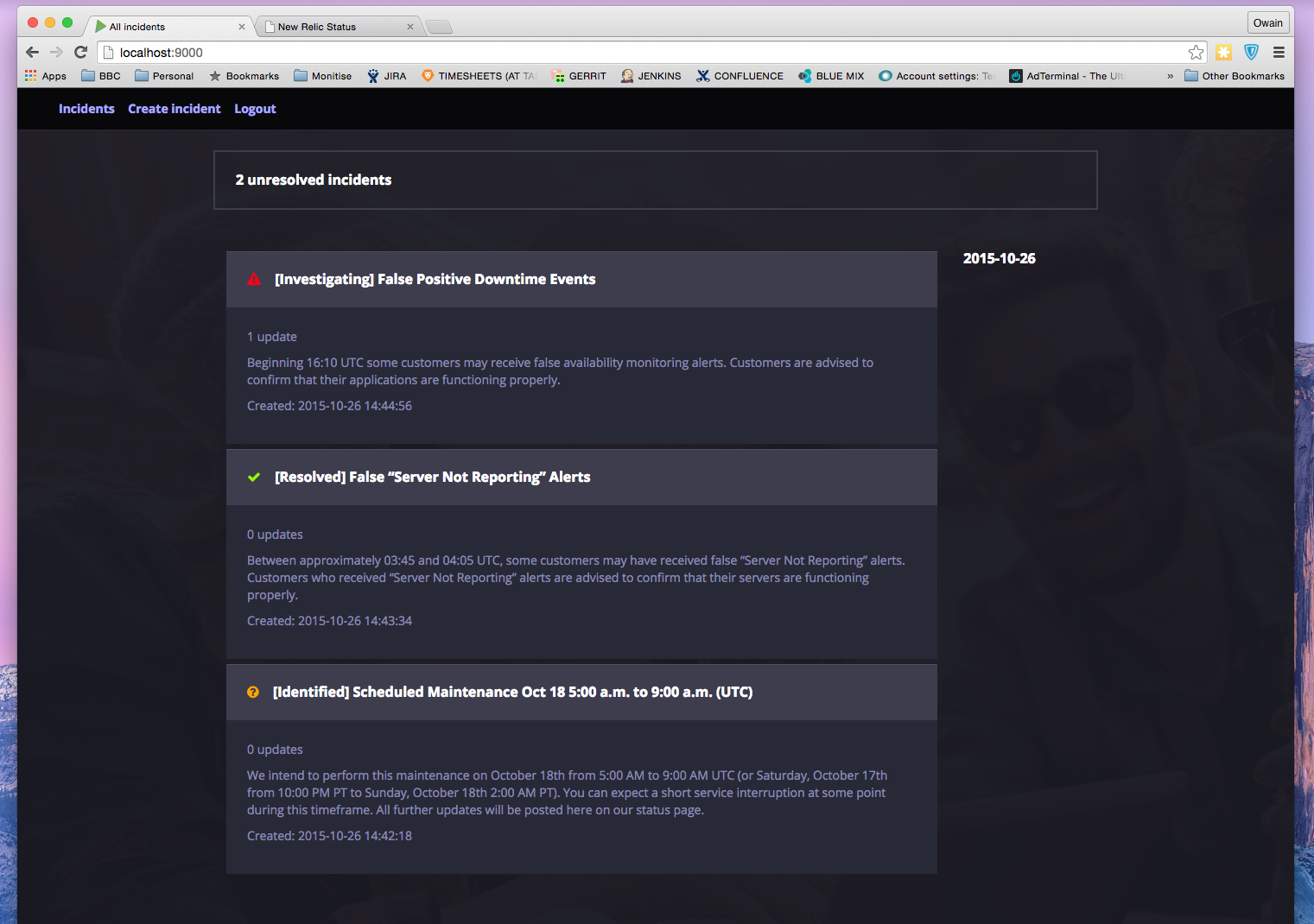https://github.com/owainlewis/status
An open source, self hosted status page application for communicating service incidents to customers.
https://github.com/owainlewis/status
monitoring status-dashboard status-page
Last synced: about 1 month ago
JSON representation
An open source, self hosted status page application for communicating service incidents to customers.
- Host: GitHub
- URL: https://github.com/owainlewis/status
- Owner: owainlewis
- License: other
- Created: 2015-10-21T17:21:38.000Z (over 9 years ago)
- Default Branch: master
- Last Pushed: 2018-09-17T11:32:04.000Z (over 6 years ago)
- Last Synced: 2025-03-28T02:22:35.985Z (about 2 months ago)
- Topics: monitoring, status-dashboard, status-page
- Language: Scala
- Homepage:
- Size: 4.7 MB
- Stars: 151
- Watchers: 6
- Forks: 13
- Open Issues: 3
-
Metadata Files:
- Readme: README.md
- License: LICENSE
Awesome Lists containing this project
README
# STATUS
> If you're using status or have any feedback ideas I'd love to hear them. Pull requests and feature suggestions always welcome : )
An open source, self hosted status page application for communicating service incidents to customers.
It is heavily inspired by https://status.heroku.com and other status page applications such as https://developers.facebook.com/status. This is a very early first attempt put together over a day or two so obviously it's pretty rough. Feel free to submit suggestions, feature requests or fixes.
A demo is available at https://systemstatus.herokuapp.com/
**Username**: admin
**Password**: password
Please feel free to contribute if you have ideas.


## TODO
+ Service overview page
+ ~~Web hook integrations (Slack)~~
+ Twitter Integration
+ Email notifications
+ SMS notifications
## Getting started
The quickest way to get your own version running is to use Heroku. Assuming you have a Heroku account then the app can be deployed in under a minute.
```
git clone https://github.com/owainlewis/status.git && cd status
heroku create
# Generate a random secret key and set as an environment variable
heroku config:set APPLICATION_SECRET="SECRETKEY"
heroku config:set STATUS_USERNAME="username"
heroku config:set STATUS_PASSWORD="password"
git push heroku master
```
## Local development
Status is a standard Play framework application written in Scala. It requires PostgreSQL.
If you are familar with the Scala ecosystem (and have activator installed) then you can run with:
```
createdb status && activator run
```
## Configuration
| Config Value | Description |
|---------------|------------------------------|
| auth.username | The admin username for login |
| auth.password | The admin password for login |
| | |
## API
Status comes with a simple JSON REST api for adding data to your system and for integration with other services.
It uses basic authentication (I know) to keep things simple.
Example request to get all incidents
```
curl -u user:pass -i http://localhost:9000/api/v1/incidents
```
Delete an incident
```
curl -iXDELETE -u user:pass http://localhost:9000/api/v1/incidents/5
```
## Integrations
## Slack
When you create an incident you can configure status to send a notification to a Slack channel
```
slack.endpoint="https://hooks.slack.com/services/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"
```
See https://api.slack.com/incoming-webhooks for more information.
### Coming Soon
+ SMS
+ Email